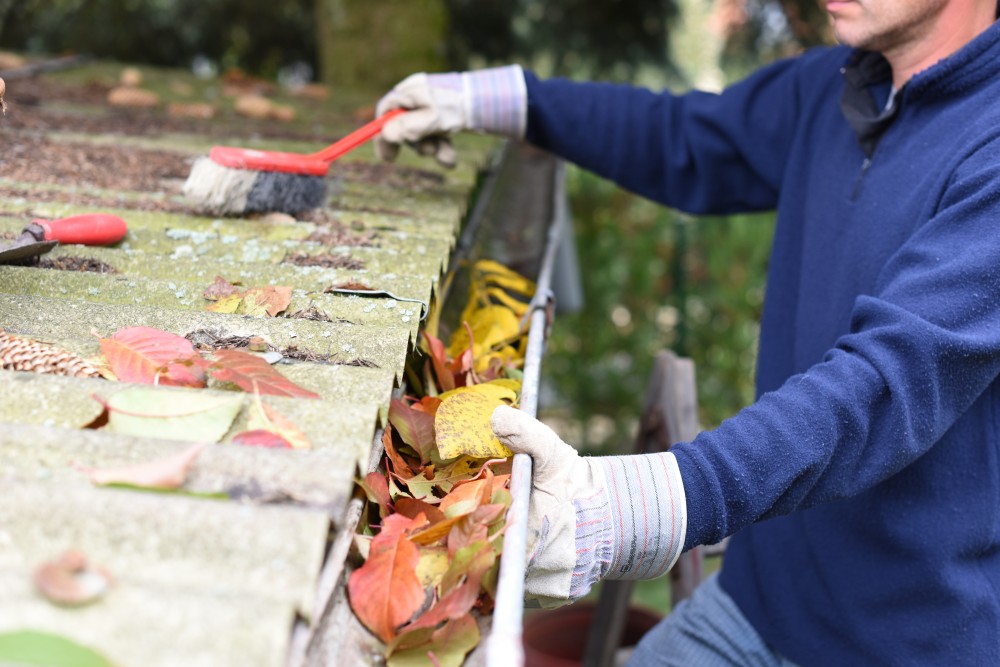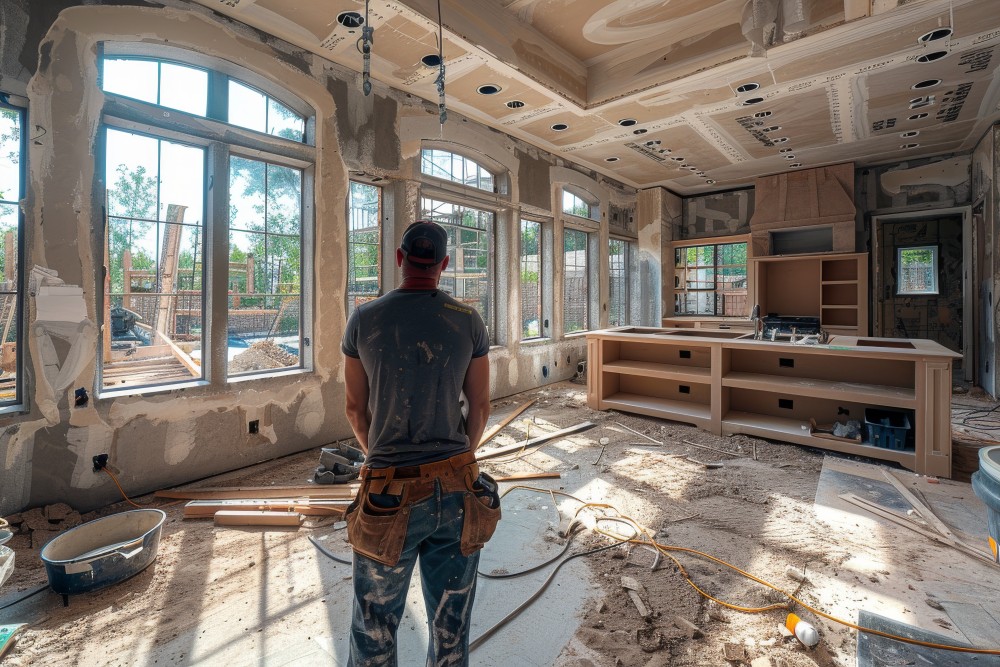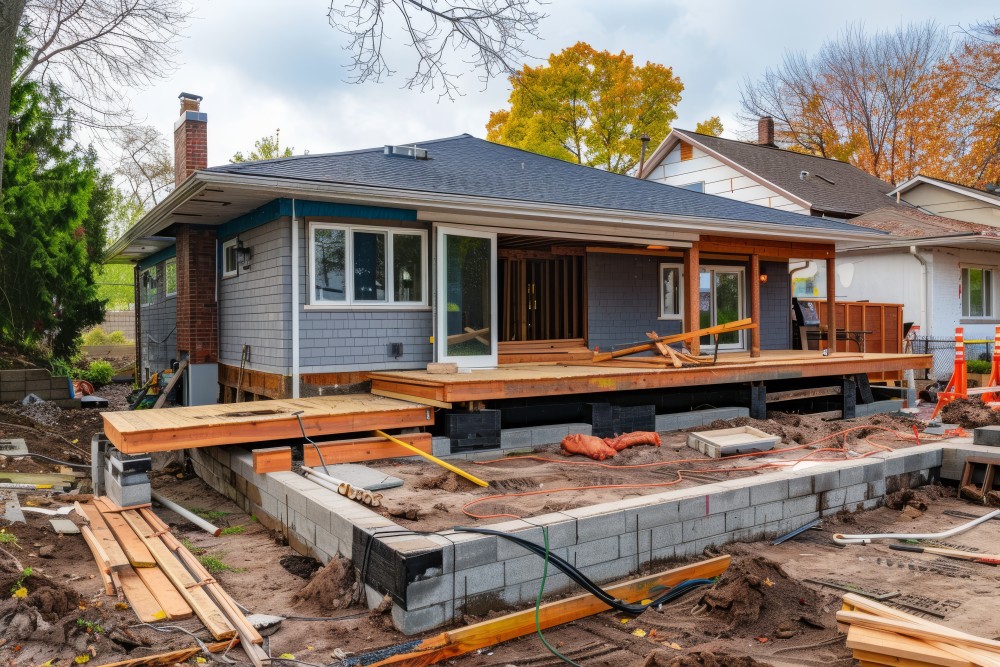1. Door-to-Door Scams
The Scam: A contractor shows up uninvited, claiming they have leftover materials from a nearby job and can offer you a great deal if you hire them on the spot.
How to Avoid:
- Do Not Rush: Never hire a contractor on the spot. Take time to research and verify their credentials.
- Check References: Ask for and contact previous clients to verify the quality of their work.
- Get Multiple Quotes: Obtain quotes from several contractors to compare prices and services.
2. High-Pressure Sales Tactics
The Scam: Contractors use high-pressure tactics to force you into making a quick decision, often claiming the deal is only available for a limited time.
How to Avoid:
- Take Your Time: Do not succumb to pressure. Take your time to make informed decisions.
- Research: Conduct thorough research on the contractor and their past work.
- Read Reviews: Look for reviews online and check their Better Business Bureau (BBB) rating.
3. Upfront Payment Scams
The Scam: A contractor asks for a large upfront payment or even the full amount before starting any work. They may then disappear with your money or do subpar work.
How to Avoid:
- Small Down Payment: Pay only a small down payment, typically no more than 10-15% of the total cost.
- Payment Schedule: Agree on a payment schedule tied to specific project milestones.
- Final Payment: Hold the final payment until the work is completed to your satisfaction.
Join HICP Homeowner’s Alliance
Connect with experts, get special discounts and enjoy member benefits
4. Inflated Prices for Unnecessary Repairs
The Scam: During a small job, a contractor “discovers” extensive damage or issues that require urgent and expensive repairs.
How to Avoid:
- Second Opinion: Always get a second opinion before agreeing to major repairs.
- Detailed Explanation: Ask the contractor to provide a detailed explanation and proof of the problem.
- Licensed Professionals: Ensure the contractor is licensed and qualified to perform the repair.
5. No Written Contract
The Scam: A contractor insists on a verbal agreement, leaving no paper trail, which can lead to disputes about the scope and cost of the project.
How to Avoid:
- Written Contract: Always insist on a detailed written contract that outlines the scope of work, timeline, payment schedule, and materials to be used.
- Review: Carefully review the contract and ensure both parties sign it.
- Keep Copies: Keep copies of all agreements and communications.
6. Lowball Estimates
The Scam: A contractor offers an unrealistically low estimate to win the job, only to raise the price significantly once the work has begun.
How to Avoid:
- Realistic Estimates: Be wary of estimates that are significantly lower than others. They may be too good to be true.
- Detailed Quote: Ensure the estimate includes a detailed breakdown of costs.
- Research: Check the contractor’s reputation and previous work.
7. Phantom Materials
The Scam: A contractor bills you for high-quality materials but uses cheaper, inferior products instead.
How to Avoid:
- Verify Materials: Inspect the materials before they are used and ensure they match what was agreed upon in the contract.
- Keep Receipts: Request receipts and proof of purchase for materials.
- Reputable Suppliers: Consider purchasing materials yourself from reputable suppliers.
8. Unlicensed Contractors
The Scam: A contractor claims they don’t need a license for the type of work you’re having done, or they present a fake license.
How to Avoid:
- Verify Licenses: Check the contractor’s license with your state or local licensing board.
- Insurance: Ensure the contractor has adequate insurance, including liability and workers’ compensation.
- Background Check: Conduct a background check on the contractor.
9. Disappearing Act
The Scam: A contractor starts the work, takes your money, and then disappears, leaving the project unfinished.
How to Avoid:
- Reputable Contractors: Hire contractors with strong reputations and verifiable references.
- Payment Schedule: Pay in installments tied to project milestones.
- Contract Clauses: Include clauses in the contract that protect you if the contractor fails to complete the work.
10. Fake Online Reviews
The Scam: Contractors or their associates post fake positive reviews to boost their online reputation and attract more clients.
How to Avoid:
- Cross-Check Reviews: Cross-check reviews on multiple platforms and look for consistent patterns.
- Ask for References: Request references and speak directly with previous clients.
- Trusted Sources: Use reputable review sites and check the contractor’s BBB rating.
Conclusion
Home improvement scams can be costly and stressful, but with awareness and due diligence, you can protect yourself. Always take your time to research contractors, insist on detailed written contracts, verify credentials, and avoid high-pressure sales tactics. By following these guidelines, you can ensure a smooth and successful home improvement project while safeguarding your investment. Stay informed, stay vigilant, and enjoy the benefits of a well-executed renovation.



















